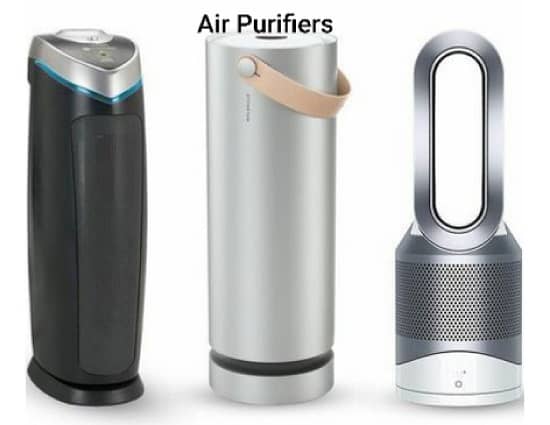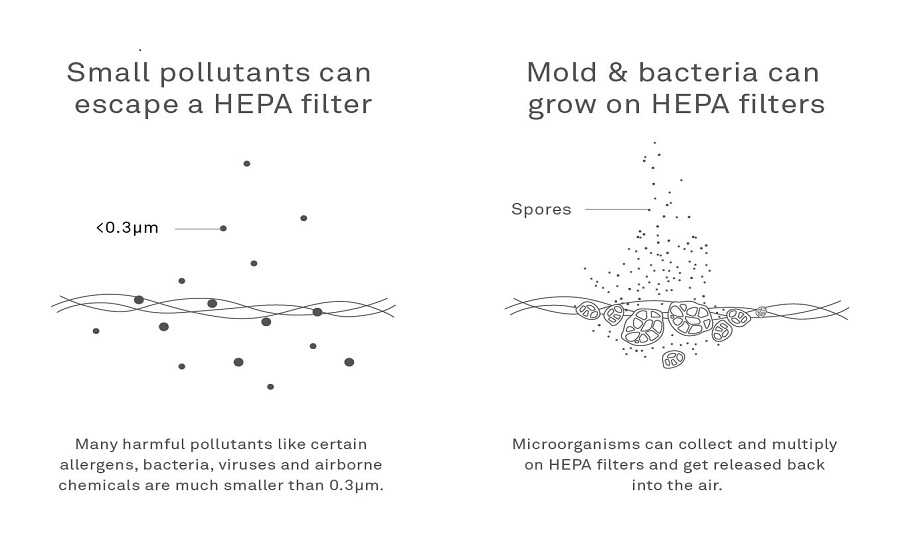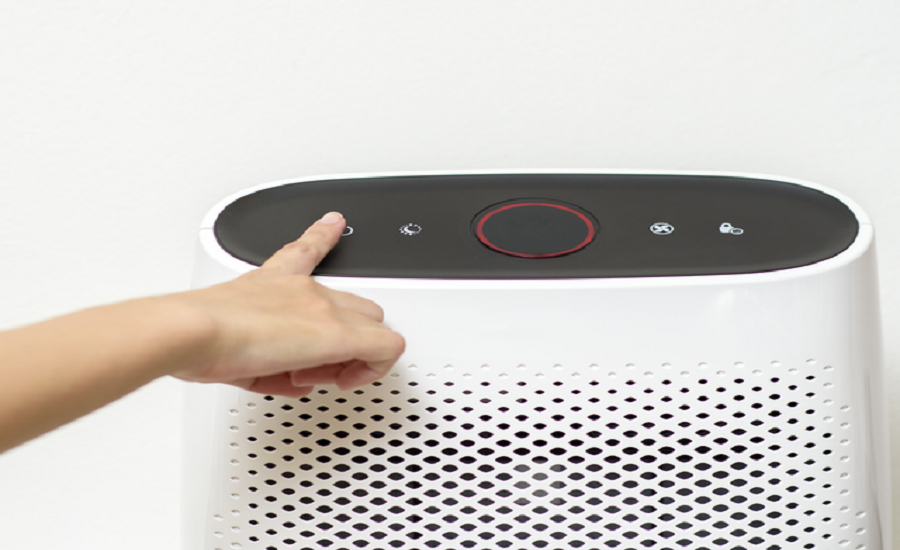Air is the basic need for living, not only humans but for every living organism. As we all know that, global warming and other factors has drastically affected the air and because of that many problems including health problems like asthma have occurred already. Air Pollution has changed our way of living. To reduce and control the rising danger of Airborne diseases many inventions are done. One of them is the use of Air Purifiers.
Unfortunately, no such invention is without any risk. This article describes How an Air Purifier Can Affect Your Health.
What is an Air Purifier?
“Health is wealth”, though a very old saying, is an undeniable truth. As the name explains itself an air purifier is a device or an appliance which purifies the air and is invented for the assurance of good health. It is only used commercially in hospitals, medical institutes or industries but are also used for residential purpose. People who are airborne diseases could get a really good help from the same as it might help in removal of dust particles which may result in different allergies.
Advantages of air purifier:
- The air purifier helps to create a dust free environment.
- Get rid of most of the allergy causing particles.
- Comes with in-built standard known as CADR (Clean Air Delivery Rate) to evaluate the efficiency of the appliance.

Air Purifier Can Affect Your Health
Every invention and product is judged on the basis of their effects on health conditions. The sole motive behind the invention of the Air Purifier was to make the air safer for breathing. Poor quality of air causes respiratory issues like asthma, lead to sleep problems, and even long-term health effects. So if you’re trying to keep your home health-friendly, a quality air purifier becomes a must!
But despite of all the advantages, what if I tell you Air Purifier affects your health, would you be willing to take the risk?
It might surprise you, but not all air purifiers are helpful! Simply adding the word “pure” doesn’t actually mean it can improve the air quality. In fact, several popular air purification options do actually nothing to improve air quality. To be frank it can even cause Headaches, sore throat, coughing, Asthma attacks, and difficulty in breathing. Yes, it is true. Your air purifier might actually worsen many of the health problems you hoped it would solve.
The producers of air purifiers focus on what happens to the air, not to your body, leaving it to consumers to connect the dots and make choices after analyzing how air purifiers affect your health.
To make a good choice, first look at the many varieties in the market today. The sheer number of them can be confusing at times, especially with each making one claim after another. So, it is better to categorize them into groups based on the technology they use. Here are the general technologies used in air purification products – Ozone Generators Air Purifier, HEPA Air Purifier, Electrostatic air purifiers, Ultraviolet Rays Air Purifier, Activated Carbon Filters, Ionizers, etc.
So now, let us discuss to understand,
How Air Purifier can affect your health?

1. Ozone Air Purifier – Ozone purifiers simply produce ozone to clean air.
How does this air purifier affect your health?
Despite all claims, ozone air purifiers don’t remove asthma triggers from the air. In fact, inhaled ozone can even make your asthma worse. Ozone air purifiers intentionally produce the gas ozone. The gas Ozone can mask odors by changing the chemical composition of particles and other gasses in the air. This makes the air seem fresher and cleaner, though particles that trigger Asthma can’t be filtered out.
On the other hand, inhaling ozone, even in small amounts, can irritate the lungs and respiratory system. Precise effects might also include throat irritation, coughing, chest pain, and shortness of breath, as well as cause an increased risk of respiratory infections.
Must Read: How to fight Depression Naturally?
2. HEPA – A HEPA or high-efficiency particulate absorber is a super-dense filter designed specifically to capture particulates as small as .03 microns. This Air filter removes small particles, by utilizing High-Efficiency Particulate Air (HEPA) filters. It is effective in removing allergens from the air, without posing any ozone concerns.
So, how does this air purifier can affect your health?
HEPA filters do not remove odors, chemicals, or gases. Thus, it is hard to consider the air safer for breathing. Also, HEPA filters just do not have any way of breaking down or neutralizing germs and viruses and also fail against VOCs or volatile organic compounds which include things like adhesives, cleaners, fuels, and off-gassing from construction products. There are even claims that HEPA filters can become a germ farm if they are not regularly cleaned.
3. Ionizers Air Purifiers – Ionic air purifier creates negative ions and emits them into the air, the same as the electrostatic purifier, but the newly formed particles become too heavy to float and fall to the surface.
It is also known as Black wall syndrome, it is a phrase coined for how much dust ends up on the surfaces around the air cleaner. Besides, it is observed that Ionic purifiers also produce Ozone, which is dangerous for health.
4. Electrostatic Air Purifier – Electrostatic air cleaners, also known as electrostatic precipitators(ESP), separate itself from pleated filters by using electricity to stop dust, pollen, and other airborne particles from entering homes.
These filters use static electricity which, while enough to filter out lightweight small particles, is simply inadequate for larger dust particles or mold spores, thus they are not ideal for people with allergies or asthma. Also, Electrostatic air filters fail to protect against ozone and even have the potential to produce ozone molecules which can damage the lungs.
Must Read: Importance of Air Purifiers
5. Carbon Based Air Purifier – Carbon is the building block of everything from our bodies to our food, every living thing has carbon in it. Once “activated”, carbon becomes able to absorb large amounts of pollution. Though it absorbs gases and odors and many organic compounds, it’s not without drawbacks as it cannot capture particulate pollutants. These particles might include allergens like dust and pollen, or even wildfire smoke, which can be especially dangerous.
6. Ultraviolet Air Purifier – UV technology is rarely used as a singular approach to air filtration. Instead, it is generally paired with other air filtration technologies to achieve maximum air quality. While a UV filter does not remove particulate matter, it can easily eliminate germs, bacteria, and viruses. When micro-organisms in the air pass through its filter, UV rays kill them. This ensures the elimination of common allergens and health-risks.
So, how does this air purifier can affect your health?
UV air purifiers tend to not be extremely effective, as because they fail to remove particulate matter, many microorganisms avoid the UV rays due to shielding gained from particles.
In Summarized way we can list the disadvantages of air purifiers as:
- Despite of it’s great ability to remove almost every dust particle, it can’t get rid of bad odour.
- Releasing of excess ozone gas, ions etc. can result in many problems and is thus harmful.
- Constant need of maintenance which is a costly process.
- Complicate process for many appliances to free the air from odor or gases.
Now, this is not to say that there are only harmful air purifiers in the market. There are some good ones, however, it is better to be cautious and to choose wisely while purchasing Air Purifier. One must keep in mind how Air Purifiers affect your health, before making a choice.

0 thoughts on “How an Air Purifier Can Affect Your Health?”